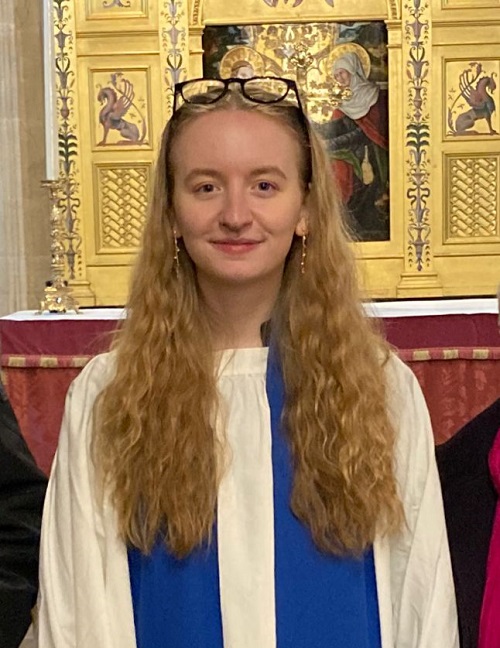 I started attending St Edmundsbury Cathedral with my mum and brothers when I was about 12, we were welcomed into the community and we all fit into respective roles within the church: my Mum as deputy churchwarden and now a priest, while my brothers were both choristers.
I started attending St Edmundsbury Cathedral with my mum and brothers when I was about 12, we were welcomed into the community and we all fit into respective roles within the church: my Mum as deputy churchwarden and now a priest, while my brothers were both choristers.
Over the years, I got more and more involved in services as a server and when I was 16, I was asked to take over the role as the ‘administrator’ of sorts for the servers – basically putting together the monthly rota and aiding the Head Server in their duties. This developed over time as my love for the act of serving did. I had found the way I worshipped best!
The Diocesan Director of Ordinations recommended that I apply for the discernment process to become a Reader, and I attended my discernment panel two days before my first A Level exam.
I decided to take a gap year before university to undertake the Reader training and it has allowed me to grow in my faith and relationship with God through this ministry.
During the training everyone else is double (if not triple!) my age, but I couldn’t have asked for a better group of people to train with. I felt welcomed and supported and we learnt and grew together.
For the past two years I have been involved in the leadership of the Chaplaincy at the University of Winchester where I was studying for a Psychology degree. They helped me to complete my training, observing ministerial tasks like leading intercessions or preaching and giving me feedback, and since my licensing I have been part of the ministerial team. Having a smaller and different setting has done wonders for the beginning of my ministry, I’ve been able to explore my strengths with great guidance and serve the Chaplaincy community and beyond.
Being a student meant that I had a connection with other students in a way that the Chaplain and other team members didn’t have.
I felt I was able to relate more, I understood what would be appealing to students, even down to when was better to put on events based on when engagement was likely to be higher. More importantly I could give an insight into the pastoral issues the chaplaincy community was facing, and students shared with me what they may not have felt comfortable sharing with the wider Chaplaincy team.
Being able to serve on the team from the perspective of a Reader as well as with an understanding of current student life was especially beneficial.